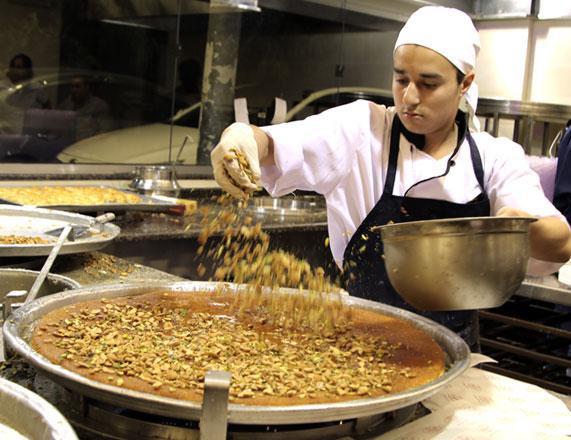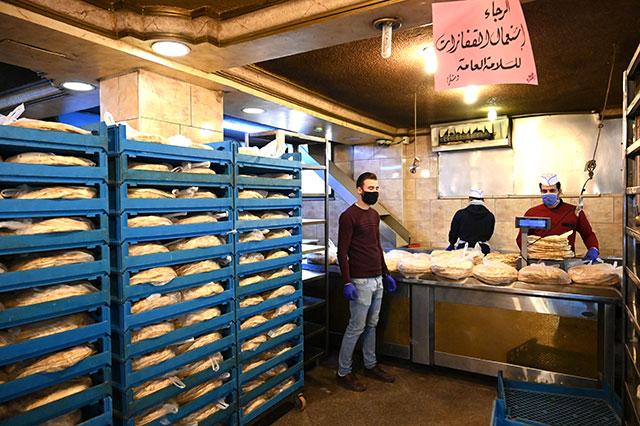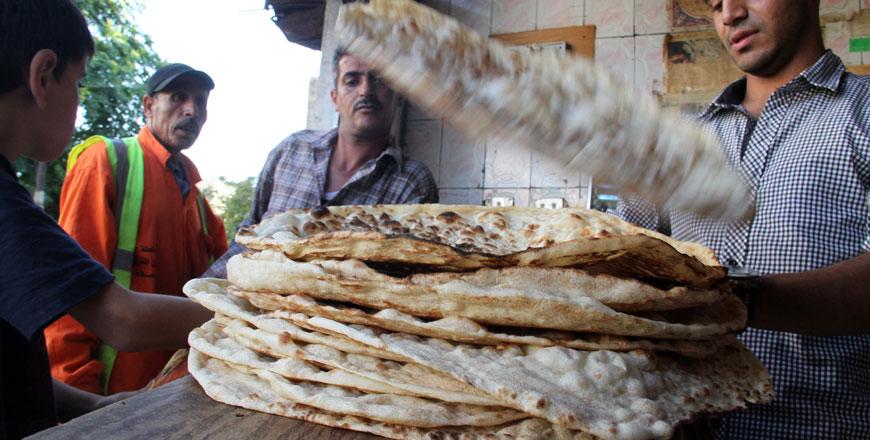You are here
Bakeries ask to broaden product lines to ease financial burdens
By Bahaa Al Deen Al Nawas - Apr 28,2020 - Last updated at Apr 28,2020
AMMAN — As bakeries have been allowed to only sell basic bread and banned from selling other types of products, Bakery Owners Association President Abdul Ilah Hamawi on Tuesday voiced concerns over financial problems facing small and large bakeries alike.
Over the past month, before Ramadan started, the limited opening times from 10am to 6pm, the restriction on citizens’ movements and the ban on selling sweets have all accumulated problems for bakeries, Hamawi told The Jordan Times over the phone.
“As bakeries’ role since the beginning of the crisis was to remain open and serve bread to their designated areas, each bakery has been committed to paying its employees and shouldering operation expenses,” he said.
Before Ramadan started, small bakeries used to open very early in the morning to sell mashrooh and taboon bread to construction workers, but when they began opening at 10am, they lost this profit, Hamawi said.
Large bakeries with 200 to 400 workers were more affected by the ban of making and selling products other than bread, which is still ongoing until now, he said, noting that regular bread is not enough to generate sufficient profits to pay operational costs and employees’ salaries.
Moreover, bakeries have been selling only to their limited areas as people were not allowed to drive their cars, Hamawi said, noting that “this may hopefully change after the recent decision that allows people to drive their cars as of Wednesday”.
Over the past month, the problems have accumulated and many bakeries have been submitting complaints about how it is becoming harder to pay their dues to flour suppliers, diesel fuel suppliers and their employees, Hamawi said.
“While sweets shops’ owners complained about allowing bakeries to sell sweets since theirs are still closed, there are types that bakeries can make without impacting sweets shops, other than qatayef and kunafa,” Hamawi said, noting that before the crisis bakeries and sweets shops have always worked together and had their own customers without issues.
“If any bakery at present sells any sweets or pastries, they shut it down, but the sector needs as much support as possible to remain on going,” he said, noting that if time remains limited as well as customers and products, “bakeries will not be able to meet their financial dues”.
“While it could be viewed that bakeries working means they are doing better than the other sectors that have completely shut down during the crisis, it is not true because bakeries have expenses to pay and they are not working at full capacity to generate profits that cover their operational costs,” he noted.
Bread production decreases by 30 to 40 per cent in Ramadan, he said, noting that this is due to people eating less meals and varying their meals during Iftar.
Therefore, bakeries require having broader product lines, Hamawi said, noting that bakeries have managed to organise queues and commit to health and safety standards and can manage to maintain them even when allowed to sell sweets, pastries and different all types of bread.
Related Articles
AMMAN — With the holy month of Ramadan just around the corner, Bakery Owners Association President Abdul Ilah Hamawi called on the governmen
AMMAN — As the bakery sector remained active throughout the COVID-19 crisis, many believe that the financial damage it suffered is less than
AMMAN — The Bakery Owners Association expects a slowdown in production during Eid Al Fitr, citing “insufficient” supplies of subsidised flou


















